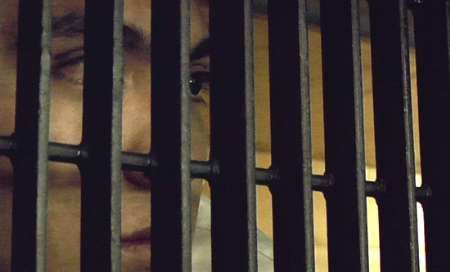Supreme Court Unanimously Sides With Inmate In Prison Guard Abuse Lawsuit

The federal government can in fact be sued when a law enforcement officer intentionally harms someone while acting within the “scope of their employment,” the U.S. Supreme Court unanimously ruled on Wednesday. Even if that “someone” happens to be a prison inmate.
The allegations underlying the case, known as Millbrook v. United States, are graphic. Kim Lee Millbrook, an inmate at a federal prison in Pennsylvania, is currently serving a 31-year sentence. He claims he was assaulted by a trio of prison guards in March 2010, when they allegedly led him into a prison basement and forced him to perform a sex act on one guard, while one restrained him and another stood watching nearby.
The facts of the allegations have not been established, since an internal investigation by the prison reportedly concluded Millbrook’s claim was unsubstantiated. After Millbrook filed suit, Judge William H. Nealon of the Federal District Court in Scranton acknowledged “the purported conduct in the present case is troubling,” but dismissed the case on the basis of sovereign immunity -- meaning the federal government was immune from prosecution. A federal appeals court affirmed that ruling, leading Millbrook to file a hand-written appeal -- without a lawyer -- to the Supreme Court itself.
Millbrook reportedly has a history of litigious behavior that has made some question the validity of his most recent claim. Undisputedly, if Millbrook was sexually assaulted by a federal prison guard, then his constitutional rights were violated. The real question in the case was whether the federal government can be held liable for a crime committed by its employees under the Federal Torts Claim Act, or FTCA.
“All of this arises out of the incredibly amount of immunity the federal government has when it comes to litigation,” Ajmel Quereshi, who serves as staff council at the American Civil Liberties Union’s National Prison Project, told International Business Times.
Under the FTCA, the government allows itself to be sued when a government employee commits a tort -- a negligent act that results in injury to someone. In the case of law enforcement officials -- a category under which prison guards apparently fall -- the federal government can only be liable if the officer was acting “within the scope of his office or employment.”
However, according to the court of appeals, a lawsuit is only permissible if the officer committed the assault while “executing a search, seizing evidence or making an arrest.” Because the guards in the Millbrook case were not engaged in those activities at the of the reported assault, it ruled the law enforcement exception to the FTCA did not apply, and the federal government’s immunity remained intact.
The nation’s high court, ultimately, did not agree. All of the justices reportedly took issue with the vague definition of misconduct that could fall within an officer’s "scope of employment." Justice Ruth Bader Ginsburg pointed out the absurdity of the definition in light of the Millbrook case, pointing out that a sexual assault could hardy fall into the "scope" of a prison guard’s employment, SCOTUSblog reports.
In an opinion authored by Justice Clarence Thomas, the court unanimously agreed that people can sue the federal government under the FTCA for "acts or omissions of law enforcement officers that arise within the scope of their employment, regardless of whether the officers are engaged in investigative or law enforcement activity, or are executing a search, seizing evidence, or making an arrest."
So what does this mean for prison inmates, who, according to Human Rights Watch, are consistently plagued by instances of rape and sexual assault by both fellow inmates and prison officials? That’s difficult to predict.
Despite ruling in favor of Millbrook, the Supreme Court opinion does contain any language indicating that the federal government can in fact be liable for sexual crimes committed by federal law enforcement officials under the FTCA. That particular issue will need to be clarified by a lower court, Quereshi said.
If a lower court decides that the government can be liable for those crimes, it could be enormously beneficial to American prisoners.
“It could allow prisoners who are victims of sexual assault to receive justice for the crimes perpetrated against them, and hopefully prevent that kind of behavior from officers in the future,” Quereshi said.
© Copyright IBTimes 2024. All rights reserved.





















